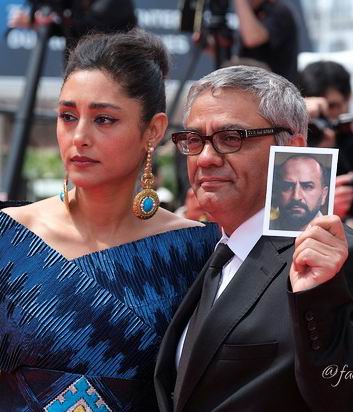|
|
| Welcome to Online Film Home! The place for all film lovers. |
|---|
|
|
|
| Shankar, Ravi
 |
Date of Birth
7 April 1920, Varanasi, United Provinces, India
Ravi Shankar (Bengali: রবি শংকর; born 7 April 1920), often referred to by the title Pandit, is an Indian musician and composer who plays the plucked string instrument sitar. He has been described as the best known contemporary Indian musician by Hans Neuhoff in Musik in Geschichte und Gegenwart.
Shankar was born in Varanasi and spent his youth touring Europe and India with the dance group of his brother Uday Shankar. He gave up dancing in 1938 to study sitar playing under court musician Allauddin Khan. After finishing his studies in 1944, Shankar worked as a composer, creating the music for the Apu Trilogy by Satyajit Ray, and was music director of All India Radio, New Delhi, from 1949 to 1956.
In 1956, he began to tour Europe and America playing Indian classical music and increased its popularity there in the 1960s through teaching, performance, and his association with violinist Yehudi Menuhin and George Harrison of The Beatles. Shankar engaged Western music by writing concerti for sitar and orchestra and toured the world in the 1970s and 1980s. From 1986 to 1992 he served as a nominated member of the upper chamber of the Parliament of India. Shankar was awarded India's highest civilian honor, the Bharat Ratna, in 1999, and received three Grammy Awards. He continues to perform in the 2000s, often with his daughter Anoushka.
Ravi Shankar, the legendary sitarist and composer is India's most esteemed musical Ambassador and a singular phenomenon in the classical music worlds of East and West. As a performer, composer, teacher and writer, he has done more for Indian music than any other musician. He is well known for his pioneering work in bringing Indian music to the West. This however, he did only after long years of dedicated study under his illustrious guru Baba Allaudin Khan and after making a name for himself in India.
Always ahead of his time, Ravi Shankar has written three concertos for sitar and orchestra, last one of which in 2008. He has also authored violin-sitar compositions for Yehudi Menuhin and himself, music for flute virtuoso Jean Pierre Rampal, music for Hosan Yamamoto, master of the Shakuhachi and Musumi Miyashita - Koto virtuoso, and has collaborated with Phillip Glass (Passages).
George Harrison produced and participated in two record albums, "Shankar Family & Friends" and "Festival of India" both composed by Ravi Shankar.
Ravi Shankar has also composed for ballets and films in India, Canada, Europe and the United States. The latter of which includes the films "Charly," "Gandhi," and the "Apu Trilogy".
In the period of the awakening of the younger generation in the mid 60's, Ravi Shankar gave three memorable concerts - Monterey Pop Festival, Concert for Bangla Desh, and The Woodstock Festival.
Ravi Shankar is an honourary member of the American Academy of Arts and Letters and is a member of the United Nations International Rostrum of composers. He has received many awards and honours from his own country and from all over the world, including fourteen doctorates, the Bharat Ratna, the Padma Vibhushan, Desikottam,Padma Bhushan of 1967, the Music Council UNESCO award 1975, the Magsaysay Award from Manila, two Grammy's, the Fukuoka grand Prize from Japan, the Polar Music Prize of 1998, the Crystal award from Davos, with the title 'Global Ambassador' to name some.
In 1986 Ravi Shankar was nominated as a member of the Rajya Sabha, India's upper house of Parliament.
Deeply moved by the plight of more than eight million refugees who came to India during the Bangla Desh Freedom struggle from Pakistan, Ravi Shankar wanted to help in any way he could. He planned to arrange a concert to collect money for the refugees. He approached his dear friend George to help him raise money for this cause. This humanitarian concern from Ravi Shankar sowed the seed of the concept for the Concert for Bangla Desh. With the help of George Harrison, this concert became the first magnus effort in fund raising, paving the way for many others to do charity concerts.
His recording "Tana Mana", released on the private Music label in 1987, brought Mr. Shankar's music into the "New age" with its unique method of combining traditional instruments with electronics.
The love and respect he commands both in India and in the West is unique in the annals of the history of music. In 1989, this remarkable musician celebrated his 50th year of concertising, and the city of Birmingham Touring Opera Company commissioned him to do a Music Theatre (Ghanashyam - a broken branch) which created history on the British arts scene.
Mr. Shankar has several disciples, many of which are now very succesful concert artists and composers. Perhaps no greater tribute can be paid to this genius than the words of his colleagues:
"Ravi Shankar has brought me a precious gift and through him I have added a new dimension to my experience of music. To me, his genius and his humanity can only be compared to that of Mozart's."
- Yehudi Menuhin
"Ravi Shankar is the Godfather of World Music"
- George Harrison
(© 2009, The Ravi Shankar Foundation)
Selected filmography of
Shankar, Ravi
|
|
|
|

Cannes 2024 |
Choose an item to go there!
|
| |
|
|
